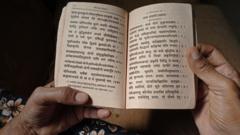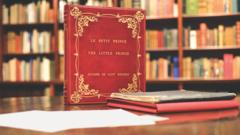New findings on William Shakespeare's life are turning long-standing perceptions on their head. A recently analyzed and overlooked 17th-century letter offers compelling evidence that Shakespeare’s relationship with his wife, Anne Hathaway, may not have been as distant as previously believed. This analysis emerges from ongoing scholarly interest in the Bard's personal life, particularly his marriage to Hathaway, whom he wed at just 18 years old while she was already pregnant.
For centuries, a narrative persisted suggesting that Shakespeare had left his family behind to pursue a life of literature in London, seeking to escape the perceived burdens of domestic life—interpretations reinforced by the infamous bequest of his “second best bed” to Hathaway in his will. This portrayal often characterized Hathaway as an inconvenient attachment to a man of extraordinary talent.
However, new insights from Matthew Steggle, a literature professor at the University of Bristol, challenge this view. The key comes from a fragment of correspondence, discovered over 40 years ago but largely ignored, that refers to “Mrs Shakspaire.” The letter was noted by an amateur historian in 1978 but only started gaining traction after a deeper analysis was conducted when the book binding was unbound in 2016, revealing what appeared to be a reply from Anne Hathaway herself.
Steggle stumbled upon this neglected document while researching a biography of Shakespeare. With advancements in technology and historical context, he explored connections linked to the individuals mentioned in the correspondence. His findings indicate a more interactive and potentially supportive relationship between Shakespeare and Hathaway, contradicting the long-held assumption of neglect.
This revelation emphasizes the need to reassess historical narratives with new evidence, reaffirming that even major literary figures like Shakespeare had personal lives that deserve recognition beyond their artistic contributions. As forthcoming publications detail these discoveries, scholars and enthusiasts alike can anticipate a richer understanding of the Bard’s domestic life and relationships.















